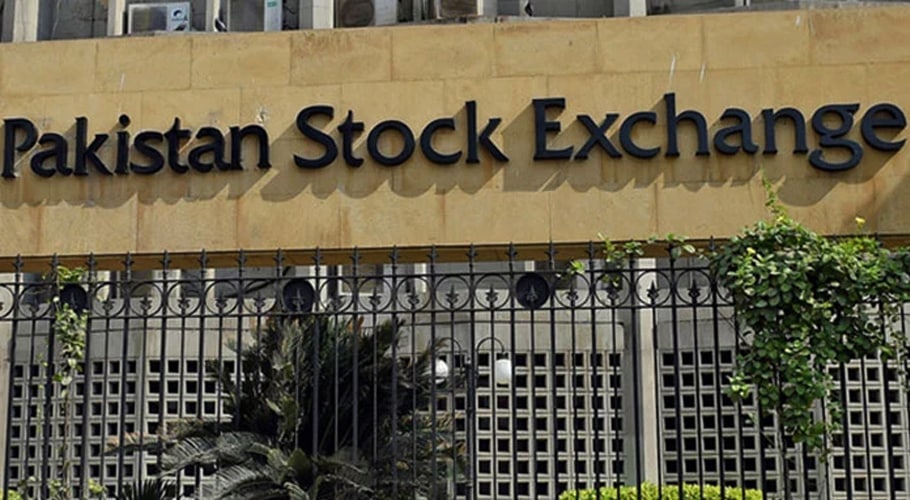 Massive relief for the Pakistan Stock Exchange (PSX) in the next fiscal year’s budget, which was also termed as pro-growth by the business community, is likely to push up the bourse in the week starting today (Monday).
Massive relief for the Pakistan Stock Exchange (PSX) in the next fiscal year’s budget, which was also termed as pro-growth by the business community, is likely to push up the bourse in the week starting today (Monday).
Decrease in Capital Gains Tax (CGT) for filers by 2.5 percent, bringing it down from 15 percent 12.5 percent, removal of withholding tax (WHT) on gross income earned on margin financing transactions, plans to bring down circular debt by payment to independent power producers (IPPs), tax exemptions and duty concessions granted to various sectors, maintaining the corporate tax rate at 29 percent, and overall positive environment are likely to be positive for the market.
“The market will react very positively to the CGT news,” CEO KASB Securities Arsalan Soomro said.
“Investors have been asking for lower tax rates since it’s a documented source of investment and the government’s yielding to the demand will be a win-win for investors and governments,” Soomro added. He further said this fiscal year would be full of optimism and strong bull-run as long as oil prices do not go out of control.
An analyst at JS Global Capital said with abundant incentives for various sectors across the board and some relief over CGT on stocks, the local equity market was likely to celebrate the federal budget FY22 going forward. “We highlight construction-oriented sectors, autos, export-oriented sectors, technology sector, food sector and other manufacturing sectors as key beneficiaries of the Budget FY22,” the analyst said.
According to a sector-wise report of Arif Habib Limited, the budget appears positive for the cement sector as a massive allocation for the national PSDP at Rs2,135 billion (highest ever; federal PSDP at Rs900 billion against Rs650 billion last year with Rs1,235 billion set aside for provinces), should encourage development in the country and hence, propel cement demand.
In addition to this, the cement sector will also experience growth due to the Naya Pakistan Housing Authority initiative, Naya Pakistan mark-up subsidy, construction of Dasu, Diamer-Bhasha, Mohmand, and Neelum Jhelum dams, in addition to the Karachi transformation plan, said the report.
As for the textile sector, the budget has resulted in a slash in turnover tax bringing it down to 1.25 percent from 1.5 percent. Customer duties have been reduced or exempted. Additionally, the regulatory duty on the import of raw material has also decreased to help the sector grow and remain competitive in international markets.
As for the automobile sector, the budget will likely result in increased sales as the sales tax has been reduced from 17 percent to 12.5 percent. In addition to this, the federal excise duty (FED) has been abolished on small cars up to 850cc. The sales tax on electric cars has been slashed to 1 percent from 17 percent. In order to further encourage greener cars, the government has granted an exemption on the import of CKD kits for EVs.
According to the report, the budget also serves to be positive for the flat and long steel sector as the custom duties on import of raw materials have been slashed. As per the report by AHL Research, “this will materially reduce (Rs9,000 per tonne) manufacturing cost of CRC / Galvanized steel. In addition to this, the Naya Pakistan Housing Scheme may result in a demand for rebars.
For the pharmaceutical industry, the government has announced an exemption of customs duty and additional customs duties on more than 350 APIs. The duties on six lifesaving drugs have also been dropped. In addition to this, in order to encourage expansion, a 5 per cent concessionary rate on the import of plant, machinery, and equipment has been announced.
As a result of the reduction of duties on raw material imports, the leather and tannery industry will likely grow. In addition to the reduction in duties, the regulatory duties the industry faced while exporting hides have been reduced too.
However, according to the report, the budget is neutral in terms of its impact on banks. However, it is important to note that withholding taxes on banking transactions have been abolished. According to the report, the budget also proves to be neutral for the power sector, oil marketing companies (OMCs), and chemical sector.